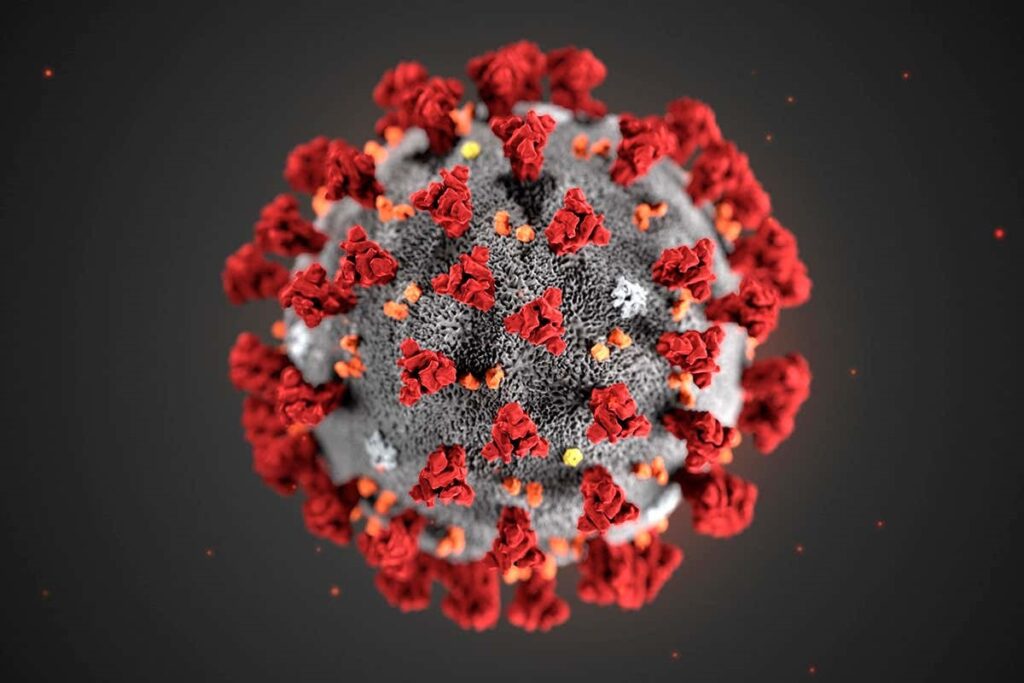Scientists in a laboratory found an antibody which they believe can prevent the infection of the novel coronavirus from infecting cells. The team hopes that the antibody will be used to create vaccines for COVID-19.
More than 3.5 million people have been infected with COVID-19, over a million have recovered and about 248,000 have died, according to Johns Hopkins University, after the coronavirus started infecting people in central Chinese city Wuhan late last year.
The team, whose work has been published in the journal Nature Communications, was investigating whether what is known as monoclonal antibodies could benefit COVID-19 patients. There is no vaccine or advanced medication currently available for the disease. Monoclonal antibodies are a kind of protein that is produced in a laboratory that can bind to a specific substance in the body.
It was found that an antibody called 47D11 binds to the spike protein used by the novel coronavirus, known as SARS-CoV-2, to penetrate the body and block it in a way that neutralizes the pathogen.
The researchers used mice whose biology has been modified to generate antibodies similar to those found in humans to conduct their analysis. They introduced spike proteins into animals that are used to attack cells by the viruses that cause SARS, MERS, and other forms of common cold. These viruses belong to the broad family of pathogenic
coronaviruses which also includes SARS-CoV-2, the bug that causes COVID-19. The mice developed 51 antibodies that could neutralize the spike protein of the coronaviruses injected.
This work stage was completed before SARS-CoV-2 first came to the attention of health officials in late 2019. The team later looked to see if the antibodies in the laboratory samples would neutralize SARS-CoV-2 and SARS-CoV and found 47D11 did.
Co-author Berend-Jan Bosch, associate professor of the program for infection and immunity at the University of Utrecht, explained in a statement that the study builds on his team’s previous work on antibodies that can attack SARS-CoV, the virus that causes SARS.
“Using this collection of SARS-CoV antibodies, we identified an antibody that also neutralizes infection of SARS-CoV-2 [the COVID-19 virus] in cultured cells. Such a neutralizing antibody has the potential to alter the course of infection in the infected host, support virus clearance, or protect an uninfected individual that is exposed to the virus.”
Co-author Frank Grosveld, Academy Professor of Cell Biology at the Erasmus Medical Center, Rotterdam, said: “This discovery provides a strong foundation for additional research to characterize this antibody and begin development as a potential COVID-19 treatment.”
Tony Carr, professor of molecular genetics in the Genome Damage and Stability Centre (GDSC) at the University of Sussex, said in a statement: “The block to infectivity is entirely based on cell culture work, but the previous literature supports the proposal that this reagent should be explored further as a potential treatment.”
Penny Ward, visiting professor in Pharmaceutical Medicine at King’s College London, said the antibody has the potential to be used to prevent and treat SARS-CoV-2 infection, “however without studying this in an animal model, it is not clear which of these approaches might be most efficient.”
The research complements separate projects investigating whether a centuries-old technique known as convalescent plasma therapy, in which the blood from a person recovered from COVID-19 is inserted into a current patient in the hope that it will help them beat the disease.
Professor Babak Javid, principal investigator at Tsinghua University School of Medicine, Beijing, and consultant in infectious diseases at Cambridge University Hospitals in the U.K., commented: “This is a very interesting study. One of the most widely touted experimental (though not yet proven) treatments for COVID is the use of convalescent plasma.”
He said: “However, the use of convalescent plasma is difficult to scale and make widely available as a treatment and has some potential safety concerns since it is a blood product. Therefore there has been intense scientific interest in identifying individual antibodies that can also neutralize SARS-CoV2. This is because we are able to manufacture large quantities of individual antibodies (known as monoclonal antibodies or mAbs) at scale as a pharmaceutical treatment for COVID. Monoclonal antibodies also don’t have the safety concerns of administering blood products.”
Simon Clarke, associate professor in Cellular Microbiology at the University of Reading, U.K., said in a statement: “Antibodies like this can be made in the lab instead of purified from people’s blood and could conceivably be used as a treatment for the disease, but this has not yet been demonstrated.
“While it’s an interesting development, injecting people with antibodies is not without risk and it would need to undergo proper clinical trials.”

